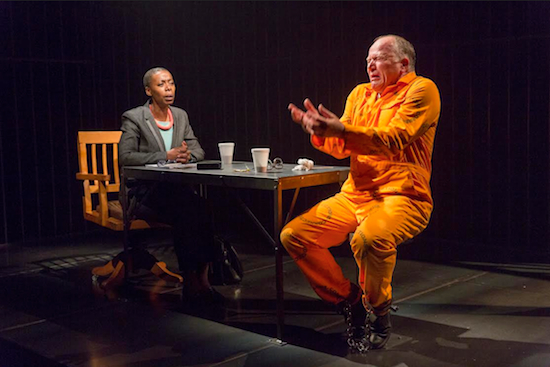Live at BAM: “A Human Being Died That Night”

You don’t have to watch or read much news to ascertain that America’s unresolved racial problems have bubbled back to the surface of our collective social consciousness over the past year or so. Sure, America is no apartheid South Africa, but, as was the case there, everyone in this country has a different opinion about who are the aggressors and who are the victims in a seemingly endless struggle. The “us and them” factor is certainly at play.
“A Human Being Died That Night” — a three-actor play based upon Pumla Gobodo-Madikizela’s interviews with Eugene De Kock, a former policeman who committed murder at the behest of apartheid South Africa’s security apparatus — is now playing at the Brooklyn Academy of Music (BAM). On Tuesday evening, a panel discussion took place after the show.
